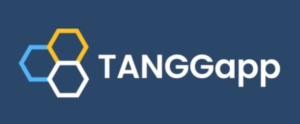
12 Fintechs Make it Into Forbes Top 100 APAC Companies to Watch in 2023
by Fintech News Singapore September 21, 202312 fintech companies have been named among the top 100 companies in Asia-Pacific (APAC) to watch this year, recognized by business magazine Forbes Asia for breaking new ground and for their potential to become regional success stories.
These companies were featured in the third annual edition of the 100 to Watch list, which spotlights small companies and startups on the rise across APAC.
The 2023 list, which was released on August 28, 2023, showcases fast-growing businesses that are targeting underserved markets or applying new technologies to address some of APAC’s biggest challenges. These companies come from 13 countries and territories, and operates across 11 industries, including biotechnology and healthcare, e-commerce and retail, and finance.
In the finance category, 12 companies and startups were featured, representing sectors including regtech, digital lending and virtual banking. They come from various locations such as Indonesia, the Philippines, Thailand, Singapore and Hong Kong, and have witnessed tremendous traction, making them poised to become regional leaders.
The following are the 12 APAC finance companies that made it into this year’s Forbes Asia 100 to Watch list.
Abacus Digital

Founded in 2017, Abacus Digital is a spinoff of Siam Commercial Bank, one of Thailand’s largest lenders. The company runs a digital unsecured lending application that serves the underbanked population in Thailand.
The platform utilizes Abacus Digital’s in-house artificial intelligence (AI) and machine learning (ML) capabilities to underwrite loans and provide a completely automated approval experience for consumers. It offers customers a fast time to money of five to 20 minutes from initial registration through loan disbursement.
Abacus Digital secured a US$20 million Series B funding round in July 2022, becoming the most funded digital lending platform in Thailand with the total funding of THB 1.5 billion (US$42 million), the company claims.
As of August 2022, MoneyThunder had recorded more than eight million downloads. 50% of these users had previously been rejected by banks when applying for loans, and around 40% had been loan shark borrowers. Acabus Digital aims to serve 10% of Thai borrowers who have difficulty in accessing a loan, or about 2.5 million people by 2024.
Bowtie

Founded in 2018, Bowtie is a licensed life insurance company and Hong Kong’s very first virtual insurer. Built with modern technology and medical expertise, Bowtie’s platform offers medical insurance plans under the Voluntary Health Insurance Scheme and other insurance products to customers instantly and directly.
By eliminating paper, commissions and intermediaries, the company’s mission is to enable a new generation of consumers to access real insurance protection and take control of life protection decisions for themselves.
Bowtie claims an annual recurring revenue of US$25 million and over 100,000 customers. The company says it has so far provided over HK$60 billion (US$7.7 billion) of insured value to families.
Bowtie has raised more than HK$680 million (US$87 million) in funding to date. Its latest round was a US$34.9 million Series B2 funding round secured earlier this month, which it said it would use to further expand its operations and technologies, and accelerate product innovation and vertical integration with healthcare providers.
Brankas

Founded in 2016, Brankas is an open finance startup headquartered in Singapore. The company provides application programming interface (API)-based solutions, data and payments solutions for financial service providers such as banks, lenders and e-wallets, as well as online businesses.
Brankas’ platform offers a roster of more than 10 banking-as-a-service embedded APIs, including ones for opening online bank accounts, credit scoring, identity verification, e-commerce transactions and gig economy payments. The company’s mission is to democratize access to financial services by allowing industry stakeholders to build and offer new, innovative experiences for their users.
Brankas, which works with more than 80 financial institutions and partners, says it is seeing more than ten million API calls on a monthly basis.
The startup secured its latest round last year, raising US$20 million in a Series B in January 2022. Brankas said at the time that it would use the proceeds to build new APIs, grow its team and add more capabilities to its payments, data and banking-as-a-service API product. In March 2023, the startup was granted licenses to offer its open finance solutions in Indonesia and the Philippines.
Ephod Intelligence
![]()
Founded in 2020, Ephod Intelligence is a software-as-a-service (SaaS) platform specializing in assisting fundamental research analysts.
The Ephod Intelligence AI platform integrates analysts’ unique investment strategies and utilizes sophisticated, non-linear quantitative models to identify and recommend the most effective stock screening factors. This approach allows the company to generate personalized trading signals based on the proposed factors, providing invaluable insights and decision-making support for its clients.
Operating in Hong Kong and Taiwan, Ephod Intelligence says it’s serving 15 institutional clients.
The startup secured US$1.1 million in a Pre-A funding round in March 2023. It said it would use the proceeds to expand its reach, enhance its capabilities and deliver more personalized trading signals and robust stock screening factors tailored to the unique strategies of its clients.
Finture

Founded in 2021, Finture is a Singapore-based fintech company that operates a virtual banking and credit payment platform called Yup.
Finture cooperates with local financial institutions and fintech companies, including traditional banks and financing partners, to provide consumers with access to easy, convenient, and affordable financial products.
Through Yup, consumers can apply for a digital debit card and e-wallet, access buy now, pay later services, and link their existing bank accounts.
Yup is currently available in Indonesia but the company recently launched a range of innovative financial products for Southeast Asians in Hong Kong. These products are designed to facilitate the financial needs of Hong Kong residents and foreign domestic workers who frequently travel to Southeast Asian countries. They include the Remote Repayment credit card, which allows relatives of a cardholder to make local purchases in Indonesia. The cardholder would then repay the expenses in Hong Kong.
In addition to its Singapore headquarters, Finture has offices in Shanghai and Jakarta. The startup secured a US$15 million pre-Series B round in June, bringing its total funding to US$41.6 million, according to regulatory filings accessed by DealStreetAsia.
Kaleidofin
![]()
Founded in 2018, Kaleidofin is an Indian fintech startup that provides digital wealth solutions for the country’s underbanked or unbanked population. The company’s primary focus is to increase access and usage of formal financial services.
Kaleidofin’s flagship product is ki cash, a bank account with a debit card. The account comes with long-term savings and credit for the informal sector and nano entrepreneur customers. The ki cash product is powered by the Kaleidofin platform combining credit health assessment capability, digital payments, and risk management dashboards.
Other products the company provides include KaleidoGoals, a goal-based savings solution; KiScore, a supervised ML-based automated credit health checking platform for informal sectors; KaleidoCredit, a credit as a platform service for lending and debt capital market use cases; and KaleidoPay, a suite of inclusive payment solutions.
Kaleidofin currently has a partnership with 27 inclusive finance institutions across the platform. The company has over a million active transacting customers with a presence in over 400 of 700 districts of India. To date, Kaleidofin has raised US$23 million from investors, according to Forbes.
PolicyStreet

Founded in 2017, PolicyStreet is a Malaysian full-stack insurtech group of companies providing cutting-edge digital insurance solutions to businesses and consumers in Southeast Asia and Australia.
PolicyStreet works directly with over 40 life, general, and Islamic insurance providers globally to offer a comprehensive range of products and services. These products and services include embedded insurance, customized employee benefits, financial advisory and aggregation of insurance, as well as the development of digital solutions to make insurance purposeful and simple for businesses and consumers.
Through its regional group of companies, PolicyStreet claims it serves over five million customers with over US$6 billion in sum insured. In 2022, the company was named one of the 100 leading emerging giants in Asia Pacific by KPMG and HSBC, and won an award at the Top in Tech Innovation Awards.
PolicyStreet secured a US$15.3 million Series B funding round in June 2023, which the company said it would use to strengthen its technology and underwriting capabilities.
Qupital

Founded in 2016, Qupital is a Hong Kong-based fintech company that operates a supply chain finance platform connecting small and medium-sized enterprises seeking to raise capital with professional investors.
Qupital specializes in cross-border e-commerce trade finance, leveraging big data, ML and predictive analytics to automate credit decisioning and monitoring processes. This use of cutting-edge technologies has allowed the company to streamline its services, providing quick and reliable financing options for businesses.
Qupital claims it has so far disbursed more than US$1 billion to over 10,000 vendors on Amazon, eBay, Lazada and other marketplaces, with a default rate of under 0.1%.
To date, Qupital has raised US$167 million in funding, according to Dealroom and CB Insights. The company secured its last round of funding in November 2021, raising US$150 million in a combination of Series B equity funding and a receivables-backed securitization facility. It said at the time that it would use the proceeds to scale its cross-border e-commerce lending business into international markets and further strengthen its technological capabilities.
Reap

Founded in 2018, Reap is a financial platform that enables access and financial connectivity through innovation for companies of all sizes. The company, which is based in Hong Kong, aims to help businesses become successful by providing the best financial tools that evolve with their customers and the market.
Reap combines spend management software with a range of innovative payment products. The company’s card issuing API allows businesses to issue and curate their own credit card programs securely, providing seamless experiences for customers. Together with the company’s expense management software, which combines global payout and its flagship Reap Visa Corporate Credit Card, Reap aims to empower businesses to take control of their finances and streamline their operations.
Reap says it has doubled its revenue over the past year, and has increased its current customer base to over 20,000 since launch. The company secured a US$40 million Series A investment round in October 2022. It said it would use the proceeds to expand into international markets, set up regional hubs and round out management hires throughout Asia, North America and Europe.
Sleek

Founded in 2017, Sleek is a Singapore-headquartered startup providing products and services to businesses. The company’s suite of services are designed to simplify the management of back-office administrative tasks for entrepreneurs and cover areas such as company incorporation, accounting, taxation and corporate secretarial services such as the preparation and filing of annual returns.
Sleek also offers the Sleek business account, which comes with local and cross-border transfers, account issuance and e-money issuance capabilities, as well as a “CFO-as-a-service” offering.
Sleek was granted a major payment institution license issued by the Singaporean central bank in July 2022, making it the first fintech company in the city-state to offer incorporation and accounting services to hold the permit, the company said at the time.
The startup, which has raised a total of US$35 million in funding, according to Techcrunch estimates, claims to have served more than 450,000 entrepreneurs get their business registered with the relevant company registry and tax authorities. It has additional offices in Hong Kong, Australia and the UK.
TANGGapp

Founded in 2020, TANGGapp is a remittance startup based in the Philippines. The company provides an international peer-to-peer mobile transaction and payments app that’s designed to make sending money from the US to the Philippines as easy as texting, regardless of where customers live, what their earn, and how much they want to send. Users in the Philippines can also link their local banks and e-wallets on the app.
TANGGapp claims it is seeing an average month-on-month growth rate of 19%, with over 48% of its users being repeat users. It says its mobile remittance product has grown 25-fold over the past two years.
TANGGapp raised a US$2.5 million Seed funding round in September 2023. The company told DealStreetAsia earlier this month that it would use the proceeds to build out its app with new products and features, expand its compliance operation, obtain more licenses, and implement strategies for acquisition and expansion into new markets.
Tookitaki

Founded in 2014, Tookitaki is a regtech company headquartered in Singapore. The company is the developer of the AFC Ecosystem, which combines Tookitaki’s network of experts with a digital platform for these experts to share their knowledge, data, and skills in order to tackle complex problems related to financial crime and pursue innovative ideas.
This network of experts includes risk advisers, legal firms, anti-money laundering (AML) specialists, consultancies, and financial institutions from across the globe.
In addition to the AFC ecosystem, Tookitaki offers the Anti-Money Laundering Suite (AMLS), an operating system comprising of four modules and which provides holistic risk coverage, sharper detection, and significantly fewer false alerts. It can be deployed in multiple environments including the public cloud, private cloud, and data center.
Tookitaki claims it’s monitored over US$3 billion in transactions to date for clients including UOB and Tencent, Forbes reported.





